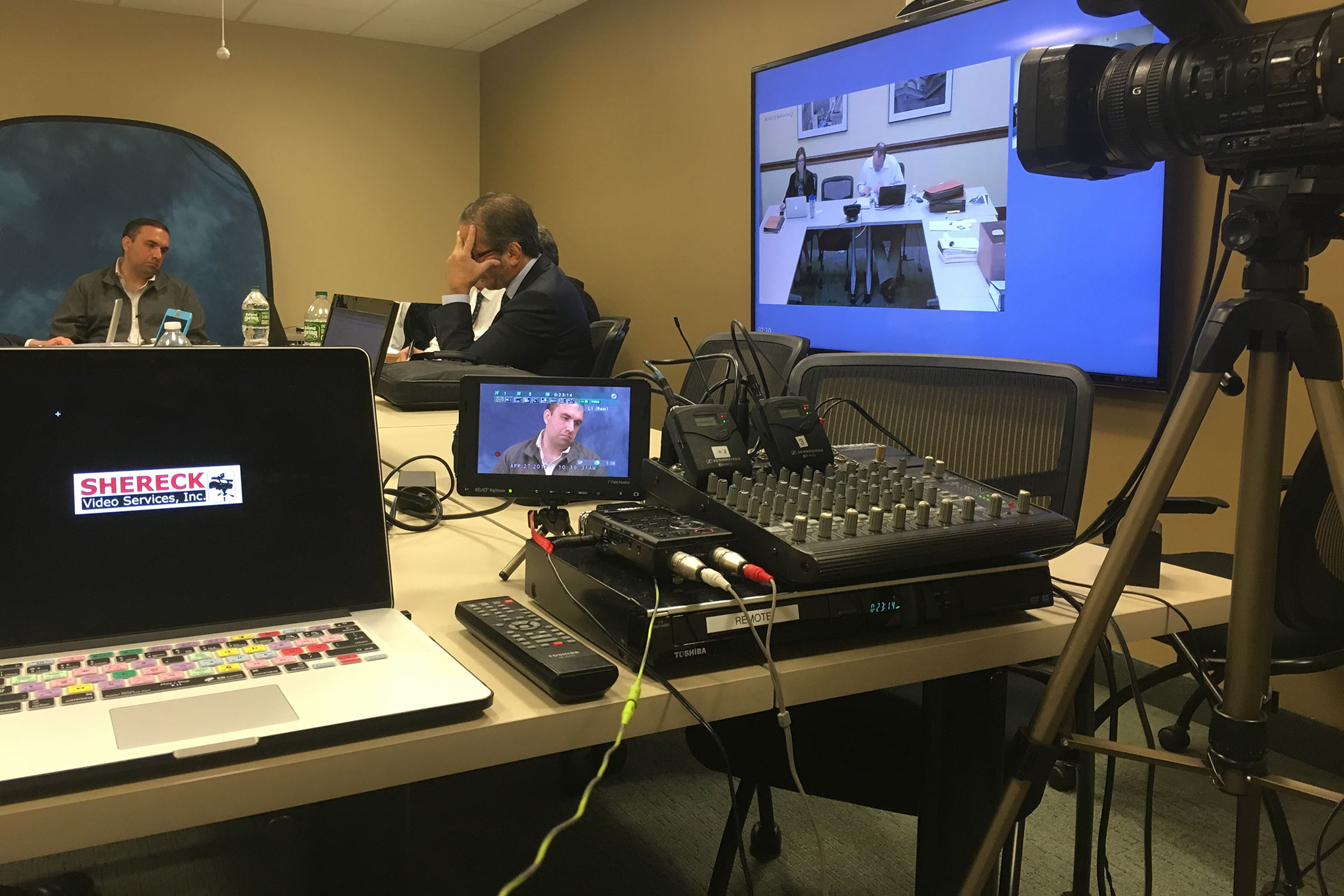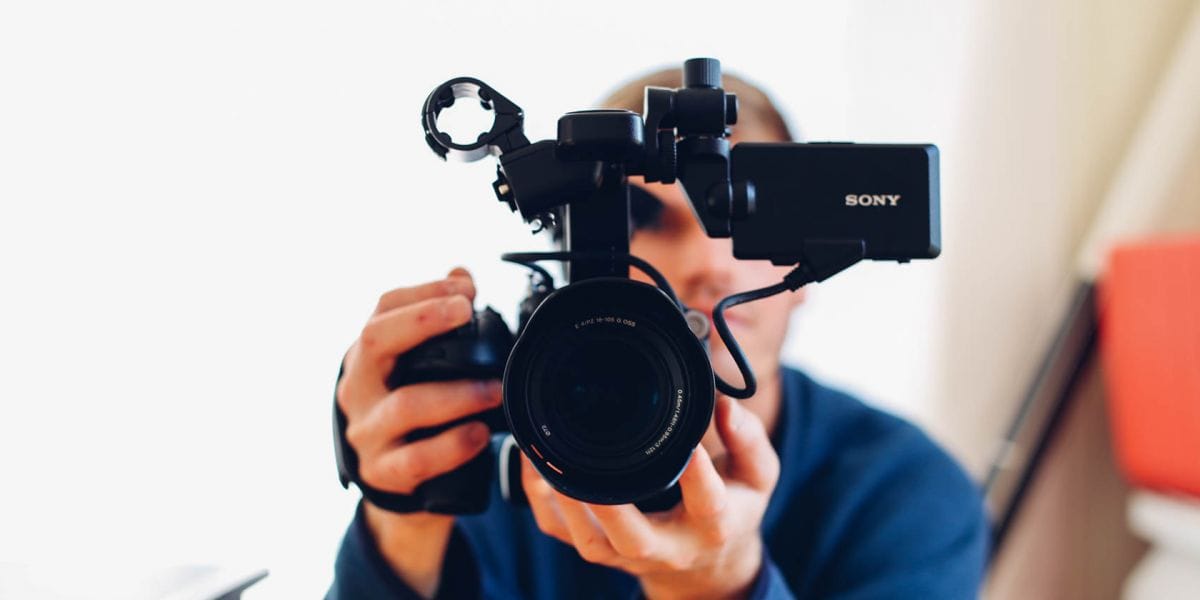Professional Legal Videography Services for Courtroom Needs.
Professional Legal Videography Services for Courtroom Needs.
Blog Article
The Function of Legal Videography in Depositions and Trials
Legal videography has emerged as a vital device in both depositions and trials, offering a diverse technique to documenting witness statements. As lawful experts increasingly identify its worth, it prompts a deeper examination of just how these visual records can affect juror perceptions and test outcomes.
Significance of Legal Videography
Legal videography plays an essential role in the paperwork and presentation of depositions and tests. This customized area incorporates technological skills with legal knowledge to produce a reliable document of process that can dramatically affect situation outcomes. The aesthetic facet of lawful videography enhances the understanding of witness testimony, enabling jurors and judges to observe not only the talked words but also the behavior, emotions, and body movement of the witnesses.

The importance of lawful videography extends beyond the court; it likewise plays an essential role in preserving evidence for future reference, whether for charms or further legal action. Because of this, its assimilation into the lawful process is important for guaranteeing a fair and precise depiction of the realities, ultimately adding to the search of justice.

Process of Legal Videography
While capturing the subtleties of depositions and trials, the process of legal videography includes several important steps that guarantee top notch, exact recordings. A professional legal videographer prepares by evaluating the instance materials and understanding the specific demands of the deposition or trial. This preparation consists of familiarizing themselves with the individuals and the context, which assists in recording important details.
On the day of the recording, the videographer establishes the needed tools, which commonly includes high-definition electronic cameras, microphones, and correct lighting. Ensuring optimal angles and audio quality is essential, as it straight influences the performance of the recording. The videographer communicates with attorneys and participants to develop procedures, guaranteeing that everyone comprehends the recording process.
During the deposition or test, the videographer meticulously tape-records the proceedings, paying close focus to both spoken and non-verbal signs. legal videography. This includes capturing the behavior and responses of witnesses and attorneys. After the session ends, the videographer may edit the video footage for clarity and conformity with legal standards, creating a last product that accurately reflects the proceedings for future reference and usage in lawful contexts
Benefits in Depositions
The incorporation of videography in depositions provides numerous advantages that enhance the general procedure of gathering proof. One key advantage is the capacity to capture witness statements with aesthetic and acoustic fidelity, giving an extra precise representation of the witness's Read Full Article behavior, tone, and body movement. This multidimensional approach allows lawyers and courts to assess reliability better than traditional written records alone.
In addition, videographed depositions work as a powerful device for preserving testimony. Ought to a witness become not available for test, their tape-recorded deposition can be played in court, guaranteeing that their my website evidence stays easily accessible and relevant. This facet significantly lowers the risk of shedding essential information that might affect case results.
In addition, using legal videography promotes much better prep work for attorneys. Reviewing video footage enables legal teams to evaluate and improve their methods, recognizing staminas and weak points in their instances. This primary benefit can result in even more engaging presentations in court.
Lastly, videography enhances the total professionalism and trust of the deposition process, instilling self-confidence in clients pertaining to the thoroughness of their legal depiction. By leveraging technology, attorneys can dramatically enhance the effectiveness of depositions.
Influence on Trials
In numerous tests, the assimilation of videography can considerably influence the presentation of evidence and the jury's understanding. Lawful videography captures witness testaments and essential evidence in a dynamic style, permitting jurors to engage with the product on numerous degrees. This visual element improves the narration facet of a test, supplying context and emotional resonance that standard text-based proof might lack.
Furthermore, video recordings can act as effective devices for impeachment throughout cross-examination. When disparities occur between a witness's previous statements and their courtroom testimony, video evidence offers an unbiased recommendation that can sway jurors' viewpoints. This immediacy and quality can bolster the integrity of an event's story while simultaneously threatening opposing arguments.
Furthermore, the use of videography can help improve complex details, making it a lot more obtainable to jurors that may have a hard time to grasp why not try this out complex details provided only with verbal testimony. By combining visuals with acoustic information, lawful videography can enhance retention and understanding, eventually affecting the jury's decision-making process. Therefore, the impact of videography in trials prolongs past plain aesthetic appeals; it plays an essential function fit the legal landscape and end results.
Future Trends in Legal Videography
As we look towards the future of legal videography, a number of arising trends assure to improve its role within the courtroom. One considerable pattern is the combination of expert system (AI) in video clip analysis and editing and enhancing - legal videography. AI can streamline the process of identifying key moments in videotaped depositions, allowing lawyers to quickly access relevant material, thus improving efficiency in instance preparation
In addition, the rise of digital truth (VR) and augmented fact (AR) technologies is expected to transform just how jurors experience proof. By immersing jurors in a substitute environment, these technologies can supply a more extensive understanding of complex circumstances, causing even more enlightened deliberations.

In addition, the boosting need for remote depositions, accelerated by the COVID-19 pandemic, will likely proceed. Lawful videographers will require to adjust to new software application and systems to guarantee top notch recordings in online settings.
Finally, the expanding focus on information safety and security will demand stricter methods for storing and sharing video clip proof. As the lawful landscape progresses, lawful videographers need to stay abreast of these patterns to preserve their significance and performance in the judicial procedure.

Final Thought
In summary, legal videography offers an important feature in the judicial process, boosting the stability of depositions and trials. As modern technology proceeds to progress, legal videography is positioned to more transform its role within the lawful landscape.
Report this page